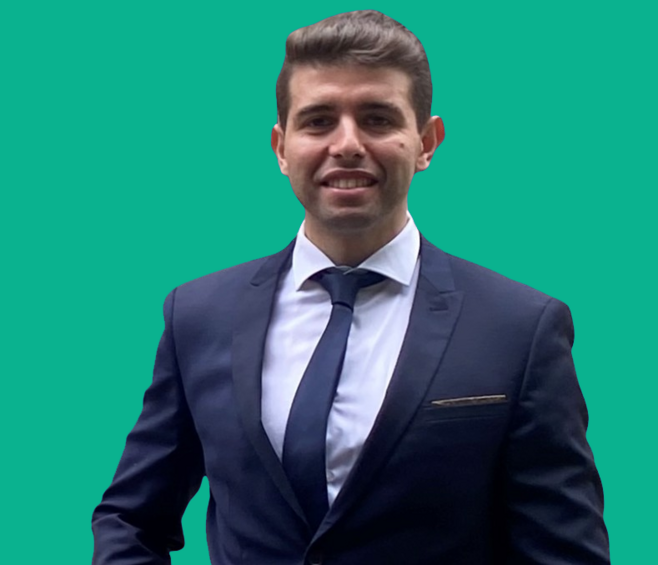The underwriter is at the center of the game, having to reconcile support for the policyholder with controlled risk-taking by the insurer. In credit insurance, as in any sport, the rule is to respect the risk underwriter's decisions. But only if they are justified. Aboubakr Belhaj strives to ensure that they are at Coface. This balance cannot be taken for granted.
Aboubakr Belhaj spoke to Agefi magazine about his job as an underwriter, and what underwriting involves at a credit insurer like Coface. Read the full interview below.
Combining figures and human relationships
Prior to the risk underwriter's work, is that of the financial analyst in the Information Department, who combs through the credit situation of policyholders' customers to assess their ability to pay.
“Our credit analysts work exclusively with buyers, and the underwriters work with the policyholders,” explains Aboubakr Belhaj.
The risk underwriter takes into account the quality of the buyer, and its macroeconomic and sectoral environment, in order to respond to the client's requests for cover.


Organization and sector specialization
The underwriting department is organized into four sector-based buyer branches. Aboubakr Belhaj's branch deals with claims relating to construction, services and paper. A second branch deals with agri-food, retail, pharmaceuticals and textiles, a third with automotive, metals and chemicals, and a final branch, GS for Global Solutions, handles accounts with a strong international presence.
The importance of geographical and cultural proximity
The organization is also geographical. Working from France, Aboubakr Belhaj concentrates on French buyers, regardless of the country of the policyholder.
“In my case, being based in France, I focus on French buyers, regardless of the country of the client,” says Aboubakr Belhaj.
However, he stresses the importance of risk underwriters retaining an international culture in order to explain decisions taken by counterparts on foreign buyers.
“Risk underwriters must retain their international culture and be able to explain decisions made by counterparts on buyers abroad.”
Overall, Coface employs around 400 underwriters at 46 sites worldwide, including 30 in France, at the Group's headquarters in Bois-Colombes.
Communication and collaboration
Underwriters position themselves on requests within an individual delegation ceiling. This depends on the underwriter's level of experience and seniority. For each request, the underwriter reviews the financial analyst's credit study.
“Some requests are processed automatically by our dedicated in-house tool, typically for high-quality buyers or small amounts, in order to provide our customers with an extremely rapid response”, notes Aboubakr Belhaj.
Decisions are communicated to the policyholder and/or his broker, present in around two-thirds of credit insurance cases. Discussions take place via the dedicated Cofanet interface, or in person.
Aboubakr Belhaj stresses the importance of exchanges with the latter, particularly through individual underwriting meetings. These interactions enable us to better understand certain decisions and to provide additional information if necessary.
“We try to do around thirty of these a year, and they represent a particularly interesting aspect of our business, which is not limited to quantitative analysis. There's no substitute for the on-the-ground knowledge that policyholders can give us about their customers", explains Aboubakr Belhadj.
It goes without saying that the underwriter's mission implies the need for ongoing advice and prevention.
The complementary role of artificial intelligence
The value of the underwriter's case-by-case analysis also derives from his sector-specific expertise. Although artificial intelligence is used for certain decisions, Aboubakr Belhaj believes that it will never replace the human relationship.
“The latest developments, as in any profession, will logically enable underwriters to intervene in higher value-added actions”.
The risk underwriter's sectoral expertise and experience remain essential for assessing specific situations, particularly in turbulent times such as those currently experienced in the construction, textile or retail sectors.
Qualities required of an underwriter
The role of risk underwriter requires operational, financial and human qualities. Aboubakr Belhaj, holder of two Masters degrees in financial management and finance, possesses these qualities, combining solid theoretical training with initial experience in financial analysis. According to him, “there are many potential job opportunities both internally, with mobility easily possible, particularly internationally, and externally towards credit management or financial management.”



